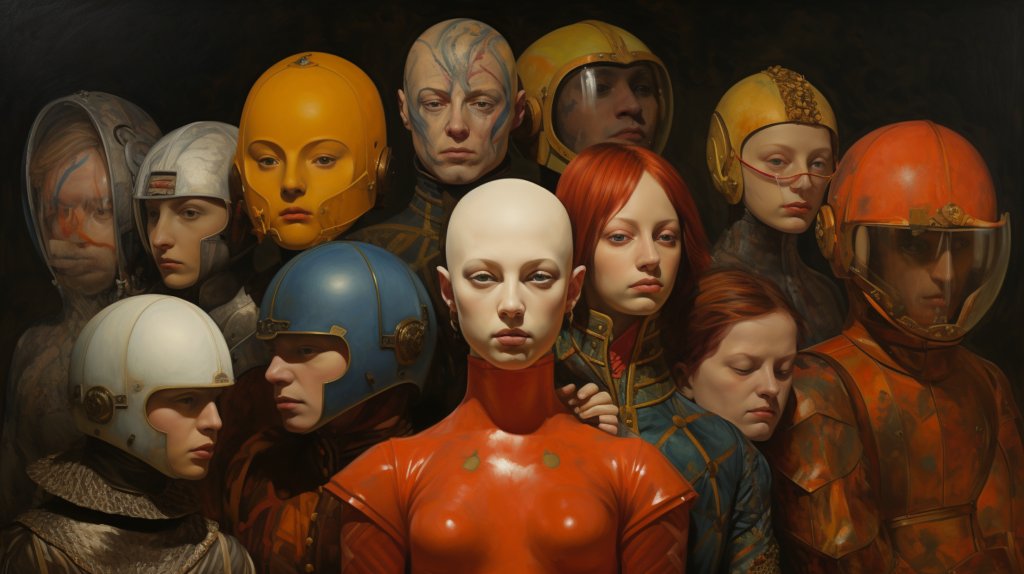Truth & Goodness
Poison on a Plate: What Drives Us to Eat Dangerously?
01 March 2026

Many principles guiding our lives are, in essence, societal constructs. Take stereotypes, for example, often formed about people we have never encountered. But beyond these, what other norms does society instill in us?
The belief in the world’s inherent justice is a common conviction. It is encapsulated in notions like “the world is fundamentally fair” or “people generally receive their just deserts.” While not universally accepted, this idea resonates with a desire for equitable outcomes. This raises the question: why is such a belief prevalent?
Humans, creatures of habit, seek routine for predictability in an unpredictable world. Similarly, belief in a just world frames our lives as sequences of events we can plan for. Actions, whether good or bad, presumably have foreseeable outcomes, a notion that applies to others too. This belief underpins the setting of future goals, explaining why individuals with long-term aspirations tend to have a stronger faith in the fairness of their world (Hafer, 2000).
Those convinced of the world’s justice also exhibit higher self-esteem, better moods, and cope more effectively with adversity. However, they are prone to errors of judgment regarding victims of undue suffering. On one hand, they may seek to help the afflicted; on the other, if improvement seems impossible, they might start to view the victims negatively. In such scenarios, belief in justice compels the mind to blame victims for their plight (Hafer and Begue, 2005).
Enacting justice often involves relying on societal systems. Nations legitimize authority to make the world safer and more predictable, clarifying what to do or avoid for betterment. This, however, leads to a tendency to justify the existing system. People defend the status quo to keep their lives unchanged and the world seemingly safe.
Various ideologies support this, including belief in a just world. Social psychologists from New York University, John Jost and Orsolya Hunyady, list many others. For instance, the Protestant work ethic advocates hard work and eschews leisure and consumption. Opposition to equality holds that increasing social and economic equality is impractical and potentially harmful. Social dominance orientation, meanwhile, suggests that some groups are inherently superior and thus deserve more.
What eludes societal trust? Remarkably, it is the notion of inherent human goodness, particularly in nations scarred by communist regimes. Psychologist Paweł Boski argues that this pervasive skepticism and cynicism are byproducts of systemic deceit. Under communism, citizens were inundated with propaganda: private property theft was masqueraded as a pursuit of equality, military expenditures as peacekeeping necessities. Official narratives were invariably met with skepticism; the concept of a government as the people’s servant was a farce.
You may also like:
This communist legacy extends to a broader societal malaise. Research links higher cynicism and mistrust to various societal ills: diminished voter turnout, increased alcohol consumption, a transactional view of employment solely as income generation, and a heightened competitive, fast-paced lifestyle.
Cynicism fosters a zero-sum worldview, perceiving one’s gain as necessitating another’s loss. Individuals with this mindset often see the interests of diverse social groups as inherently conflicting, where life is a constant tussle at others’ expense. Studies reveal that such perspectives are more prevalent among those with lower education, lesser professional prestige, and reduced incomes.
A central debate about societal beliefs concerns whether human characteristics, like personality, morality, or intelligence, evolve over a lifetime. The implications of such beliefs are significant. Advocates of immutable traits face greater difficulty in overcoming failures, particularly in terms of intelligence. To them, each setback signals inevitable future failures, stemming from an inability to evolve their capabilities. Conversely, those who view traits as malleable regard failures as opportunities for growth, often resulting in an enhanced work ethic to overcome subsequent challenges.
This dichotomy extends to perceptions of others. Those who subscribe to the notion of fixed traits typically interpret actions as reflections of inherent qualities, rather than as responses to situational factors. Observing aggressive behavior, such as kicking a can, they might hastily attribute it to an aggressive nature, expecting similar behavior in varied contexts. In contrast, believers in trait malleability consider the influence of specific situations and psychological states on behavior.
These convictions also shape attitudes towards stereotypes. Individuals convinced of the constancy of traits are more prone to stereotyping, often disregarding contradictory information and reinforcing their pre-existing biases. Their tendency to overlook counterexamples perpetuates a cycle of confirmation bias, cementing their worldview.

Translation: Klaudia Tarasiewicz

Truth & Goodness
01 March 2026


Zmień tryb na ciemny